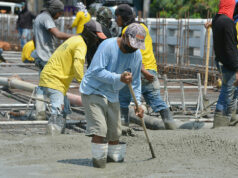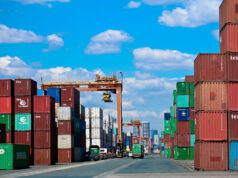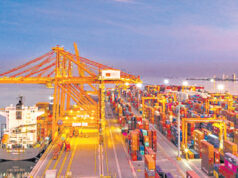Shipping price regulation order still subject to consultation
THE government’s bid to regulate the rates charged by shipping lines may have to wait longer as the Department of Finance (DoF) makes its final revisions for the proposed joint administrative order (JAO).
Asked about the status of the JAO draft, Finance Assistant Secretary Antonio Joselito G . Lambino II said last week that the department cannot give a timeline yet as meetings with stakeholders are still ongoing.
“Meetings are still ongoing,” Mr. Lambino said in a mobile phone message, adding that “[there is] no information yet on the timeline.”
Finance Undersecretary Antonette C. Tionko said that the Bureau of Customs (BoC) is still “coordinating with the Philippine Ports Authority, the Maritime Industry Authority as well as the Department of Trade and Industry (DTI),” which heads the initiative.
In a meeting with the presidential anti-corruption commission (PACC), Customs Assistant Commissioner of the Post Clearance Audit Group Vincent Philip C. Maronilla said that among the issues raised were the lack of regulation on costs imposed by shipping lines even if it concerns public interest because of its inflationary effect as well as the issues on profiteering and other fraudulent activities.
“The PACC has also, although these are private entities, raised the issue on why it remains unregulated when the costs of shipping lines are right now impressed with public interest because inflationary rin naman yung effect nya (the effects of high prices are inflationary) and at the same time there are profiteering issues,” Mr. Maronilla said in an interview on Thursday.
While it understands that the issue of imposing fees involves private entities, PACC is still “looking very keenly” into the matter as it concerns public interest, he said.
Once the government regulation is allowed through the JAO, the state can determine the costs being charged if they are “fair and reasonable” as “any charges that are unwarranted will have to go through some sort of a process,” he said.
He also said that the regulation will help the Bureau on port congestion issues as well as help bring down the high shipping fees.
“Minamadali din namin yun (We are expediting it) because that’s very important for port congestion issues,” he said.
Mr. Maronilla said the Department of Transportation (DoTr) and the BoC have both expressed interest in the regulation.
He said the DoTr is more suited for the part as it has “more jurisdiction and technical expertise” on the matter.
“If nobody else wants to, we’re very much willing to take the cudgels of regulating these, but again, I think regulation of shipping lines is a broader issue than customs clearance,” he said.
“But of course we would prefer, being a mode of transportation, if DoTr, who I think has more jurisdiction and technical expertise relative to these matters, can assume jurisdiction over the regulation of this shipping line business.”
The proposed JAO was initiated by the DTI, the DoTr and the DoF to regulate the charges imposed by international shipping lines as well as introduce port reforms that could lessen port congestion.
“There are just concerns, there’s a few tweaks that DoF wants to do [and needs] some time to be able to resolve this issue,” Mr. Maronilla said.
Currently, he said the Association of International Shipping lines is determining the rates since it is a “private contract between consignee or the one exporting, whoever shoulders the cost, and the shipping lines.”
“You cannot stop the imposition of charges by private entities in a private transaction because those are protected by the Constitution… that there should be no impairment of contracts, but of course, there are exemptions to it,” he said.
If there are public interest issues involved “and if it’s not fair and reasonable and would border on some sort of fraudulent and profiteering activity, then the state could come in to help out its citizens and regulate these activities.” — Beatrice M. Laforga



